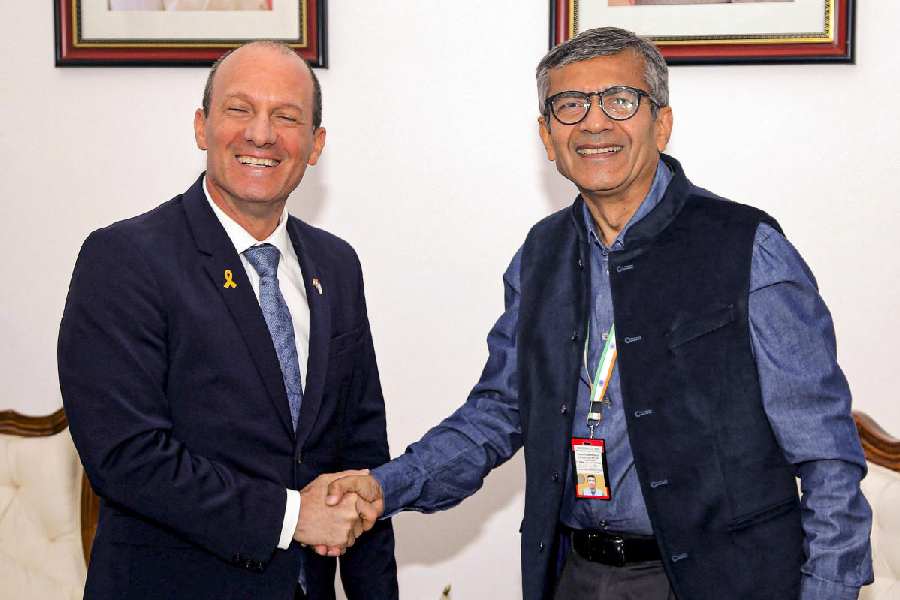Prime Minister Narendra Modi on Monday held security review meetings with top defence and security officials, including national security adviser Ajit Doval, as pressure mounted on the government to take demonstrative action to avenge the Pahalgam terror attack.
Sources in the security and defence establishments said the government was assessing retaliatory options and possible consequences.
“The government is weighing several options, including military options. Several factors have to be taken into account, including the escalation dynamics, before arriving at the final decision,” a defence ministry official told The Telegraph.
Amid the heightened tensions with Pakistan following the April 22 massacre, Islamabad has threatened nuclear retaliation to any Indian military measure.
A security official attached to the Union home ministry said: “Prime Minister Modi is understood to have discussed post-attack security scenarios in a series of meetings since the Pahalgam terror attack. It seems some military action is being considered and will happen sooner than later.”
He cited the statement defence minister Rajnath Singh had made on Sunday. “I want to assure you that under the leadership of PM Modi, what you desire will certainly happen,” Rajnath said.
Over the past few days, there has been a flurry of meetings between Modi, Rajnath, home minister Amit Shah and officials in the security establishment.
Modi on Monday met defence secretary Rajesh Kumar Singh, who briefed him on the preparedness of the armed forces, sources said.
Later in the day, the Prime Minister met security officials, including Doval, who is said to have briefed him on the evolving situation.
The string of top-level meetings began on Saturday when the navy chief, Admiral Dinesh K. Tripathi, updated Modi on naval preparedness along critical lanes in the Arabian Sea where drills were being conducted. A day later, Air Chief Marshal A.P. Singh met the Prime Minister. The government has remained tight-lipped on the outcome of the meetings.
After his discussions with the three services chiefs, Modi had last week said the armed forces had “complete operational freedom” to decide on the mode, targets and timing of India’s response to the Pahalgam carnage.
India has alleged “cross-border linkages” to the terror attack that killed 26 people, with Modi promising to go to the “ends of the earth” to punish those involved.
A day after the attack, India announced a raft of punitive measures against Pakistan, including the suspension of the Indus Waters Treaty, the closure of the land border crossing at Attari and the downgrading of diplomatic ties.
In response, Pakistan closed its airspace to Indian flights and suspended trade with India.
Mock drills
The Union home ministry has asked several states to conduct mock drills on May 7, government sources said on Monday.
The measures to be taken during the drill include operationalising air raid sirens and training people in civil defence measures so they can protect themselves in the event of a “hostile attack”, they said.
The other measures include crash blackout provisions, the early camouflage of vital installations and updated evacuation plans with rehearsals.
LoC firing
Army sources on Monday said that tensions remained high along the Line of Control with Pakistan resorting to unprovoked firing for the 11th night running.
“During the night of May 4 and May 5, Pakistani army posts resorted to unprovoked small arms fire across the LoC in areas opposite Kupwara, Baramulla, Poonch, Rajauri, Mendhar, Naushera, Sunderbani and Akhnoor in Jammu and Kashmir,” an army official said.
The Indian Army responded to the firing promptly, he said.










